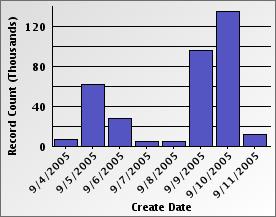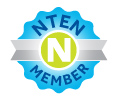In early September, I sent out an urgent call for resources for the Katrina PeopleFinder Project. I wanted to follow up, share our achievements, and thank you for your support.
We have combined virtually every missing and found person listing on the web (currently over 640,000 records) into a single searchable database at http://www.katrinalist.net/ in less than a week with an all-volunteer effort.
Goals & Achievements
The Katrina PeopleFinder Project set out to solve a single problem: an evacuee needed to search up to 40 different websites to find out where their loved ones were located and whether they were OK. We laid out three goals:
- Create a technology specification for easily exchanging evacuee information.
- Assemble and coordinate volunteers building technology to get all evacuee data into a central database provided by Salesforce.com Foundation.
- Organizing a massively parallel volunteer data entry project to enter refugee data posted to online bullitin boards into a central database by hand.
We mobilized over 3,000 volunteers and accomplished these goals.
- The project started on September 1, 2005 with the Social Source Foundation, CivicSpace Labs and the Salesforce.com Foundation committing ourselves to the three basic goals.
- By September 5, we had finalized the Peoplefinder Interchange Format (PFIF), a technical standard for storing and exchanging refugee data.
- By September 6, virtually every message board post was hand-entered by volunteers into the PeopleFinder database (~100,000 records).
- By September 10, almost every missing and found person record on the web was searchable at www.katrinalist.net (~350,000 records).
- By September 19, over 620,000 records are searchable.
- Our data is being processed by IBM and the San Diego Supercomputer Center to form part of a central database of evacuees for the Red Cross and Microsoft.
On-going efforts
Two major sister projects have been spawned from the volunteer community:
ShelterFinder is creating a dynamic, comprehensive national listing of shelters (including small community based churches, etc).
PeopleFinder volunteers are coming together to make sure that the technology, procedures and relationships between institutions necessary to duplicate our achievements are ready for the next major disaster.
Learn More
For me, this entire experience is about non-profits having the capacity to leverage technology and massively parallel resources to better fulfill their missions... helping people. The same work I do at the Social Source Foundation.
It is time that we invest in pre-positioning technology, capacity, plans and knowledge so that we’re not building the bridge as we cross the river in the next disaster. I was proud to have led part of this dynamic, distributed effort. If you would like more information, please send me an email and I will connect you to the appropriate person(s).
We are at also offering an overview of the project in a Webinar sponsored by the Nonprofit Technology Enterprise Network (NTEN), HumaniNet, Aspiration, and the Innovation Funders Network. Hurricane Katrina: Innovative Information and Communication Responses is a free online event. You can register at
http://www.nten.org/webinars.
Thanks from the many volunteers of the Katrina PeopleFinder Project,
http://katrinahelp.info/wiki/index.php/Katrina_PeopleFinder_ProjectAnd a personal thank you from me,
David Geilhufe
Co-Founder
Social Source Foundation
Connect with me on Linkedin...



